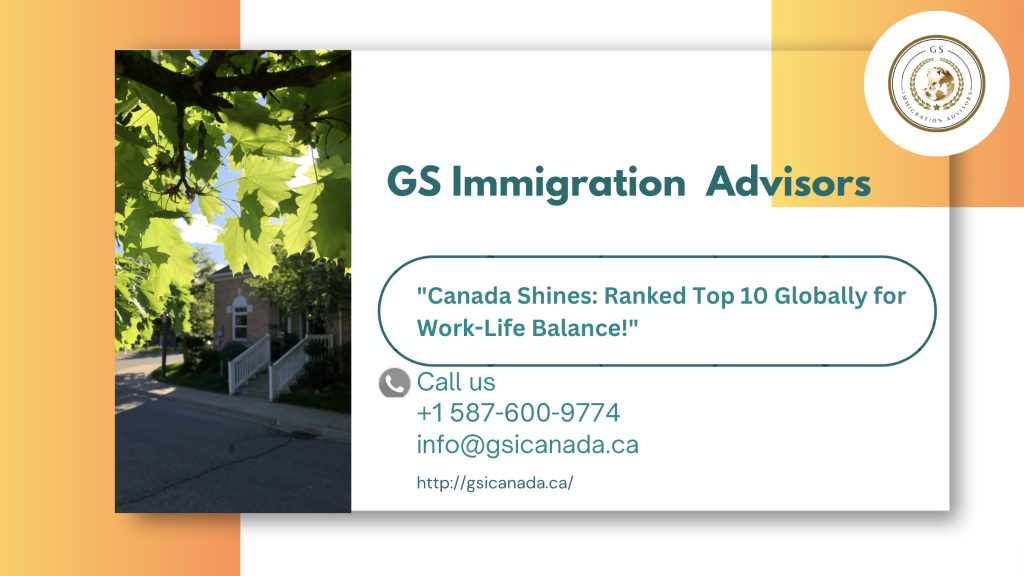
According to a survey conducted by the international human resources company Remote HR, Canada is among the top ten nations in the world for work-life balance, or as the report refers to it, life-work balance.
Overall, New Zealand, Ireland, Belgium, and Denmark occupied the top four positions, with Canada coming in fifth.
Rankings for a number of variables that affect an employee’s work-life balance are included in the data. These include of minimum wage, percentage of sick pay, number of hours worked per week, mandatory yearly leave, and an overall happiness score.
Canada achieved an overall score of 72.75 out of a possible 100. It scored high for its relatively short work week (an average of 32 hours for most Canadians), safety, and for being 2SLGBTQ+ friendly.
Germany, Finland, Australia, Norway, and Spain rounded out the top ten. Canada’s closest neighbour, the United States, ranked 55 out of 60 in the Remote rankings with a score of 31.82 due to no annual paid vacation or sick leave, non-universal healthcare, and more hours worked per week.
The data on average working hours in Canada reported by Remote is supported by the most recent Organization for Economic Cooperation and Development (OECD) work-life balance rankings where Canada again placed fifth overall. OECD said that “just 3% of employees work very long hours in paid work, much less than the OECD average of 10%.”
OECD noted that full-time workers in Canada use 61% of their day (14.6 hours) for personal care. This includes eating and sleeping as well as leisure activities. This is just slightly less than the global average of 15 hours.
Canada short on vacation time
The Remote report showed that Canada fell short in annual statutory leave and vacation time.
The data said that people employed in Canada receive 17 days of annual statutory leave. However, this is not always easy to measure as employment standards in Canada are mandated by provincial governments. For example, in Ontario, Canada’s most populous province, workers in the private sector (meaning those not employed by the federal government or in a federally regulated industry) can spend the first five years in any job with just 10 days (two weeks) of vacation time per year. According to the Ontario Employment Standards Act, minimum vacation entitlement increases to three weeks (15 days) after five years.
Again, this timeline can vary by province. Employees in Saskatchewan are entitled to three weeks of paid vacation after one year of employment, going up to four weeks after ten years. Quebec’s annual vacation entitlement rises from two weeks to three weeks after three years of employment.
This does not account for Canada’s federal statutory holidays such as Christmas Day, Canada Day, Labour Day, Thanksgiving, Good Friday, and Victoria Day. There are also other public holidays but, in many instances and depending on the province, employees are not automatically entitled to take those days off. It often depends on their employer.
Comparatively, in both New Zealand and Ireland, all employees are entitled to four weeks of paid annual vacation after 12 months of continuous employment.
Regularly attaining high rankings
Canada usually comes up high on international lists. For instance, in January of this year, Berkshire Hathaway Travel Protection (BHTP) named it the world’s safest country for travelers, while in late 2023, Givetastic conducted a study that revealed Canada to be the most popular “dream work destination” worldwide.
In addition, Canada’s passport is ranked seventh strongest in the world in the most recent rankings released by citizenship and residency consulting firm Henley & Partners.
These rankings add to Canada’s appeal as one of the most sought-after destinations for newcomers. In 2023, it welcomed over 470,000 new permanent residents and the Immigration Levels Plan for 2024 targets admitting a further 485,000. While Canada’s immigration minister, Marc Miller, has recently indicated that immigration levels in the near future may look different, he also recognized the economic and social benefits of welcoming newcomers sustainably.